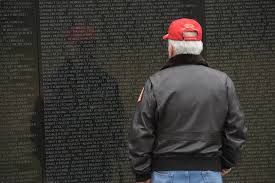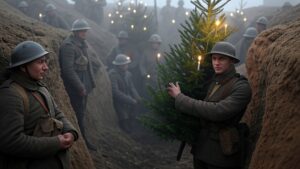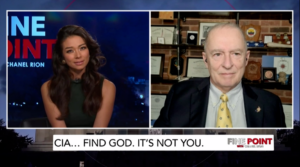Jeemes Aker is a Senior Fellow of Americans for Intelligence Reform and has written several books. A former CIA Senior Analyst, prior to his Agency experience, Mr. Aker worked for more than a decade as college professor and school administrator, practiced law, and managed a congressional election campaign. He served in the U.S. Air Force as a Chinese linguist and was awarded an Air Medal for his participation as crew member in combat sorties during the Vietnam War.
Ode to Alfie
“James Earl Lakins, age 21, Army SGT (E-5), 101st Airborne Division, casualty on January 17, 1970, in Thua Thien, South Vietnam, casualty by explosive device, body recovered, Panel 14W Line 40.”
Alfie’s epitaph (in the Wall’s books)
“Only the good die young.” Billy Joel
Recently one of my former college students sent me a text message that he was going to be in Washington D.C. and asked if I would meet him downtown. Eli was part of a group of 150 College of the Ozarks students and staff visiting the city as part of a two-day patriotic trip to visit the White House, various Smithsonian Museums, and the National Mall.
Late at night on September 30, 2019, I finally caught up with Eli and the rest of the group gathered on a grassy knoll near the Vietnam Memorial. It was the perfect occasion to pay tribute to the brave men and women of my generation. I was wearing my favorite cap marking me as a Vietnam veteran serving in the U.S. Air Force.
A near drizzle in the cool evening air blocked out the stars from those of us in attendance. Behind the gathering was the alabaster white and shining obelisk of the Washington Monument—with the Capitol Dome tucked behind it—and in front the dazzling Lincoln Memorial. Stretched out immediately in front of the students was the snake-like, half-buried Vietnam Memorial Wall with its endless list of names.
The surreal scene where the students gathered was bathed in artificial light so the film cameras could focus on the speaker, Terrence R. Dake, one of CofO’s most famous graduates and retired four-star Marine Corps general. General Dake also serves as CofO’s Chairman of the Board of Trustees. In the misty darkness, the general treated the students to a wonderful geopolitical overview of the Vietnam war: the first television war, the “domino theory,” draft dodgers and Jane Fonda, a country divided, and returning uniformed soldiers being spit on in the airport.
It was a magical tour de force of an era.
The general’s final two clinching points: first, this great country of ours is worth the human sacrifice needed to preserve it and second, the need for politicians to make sure that any future war must be consistent with American values and enjoy widespread popular support. That was the least we can do if we ask our young men and women to put their lives on the line.
The students, sitting cross-legged in the wet grass during the entire presentation, were polite, receptive and appreciative.
Afterwards I greeted and hugged several of my former students and campus co-workers.
But as the assembly was dismissed, I wish I could have had five minutes to tell them about Alfie.
Just five minutes.
Alfie’s name is on the Wall.
He was my former college roommate at Cumberland College.
Alfie was the same age as many of those college students gathered there that evening. He stepped on a landmine in the jungles of South Vietnam. His slender body was ripped into so many pieces they couldn’t open the casket.
Alfie was buried in a casket produced by the lowest bidder. Perhaps I would have told the students about the time I returned from the war theater to see my dying grandfather. The Red Cross arranged my emergency leave using the fastest way home. That was in the sling seat of a KC-135 cargo aircraft stacked with caskets, from the floor to the ceiling of the cargo area, carrying the remains of our fallen soldiers from Vietnam.
Just me and the caskets.
Years before, Alfie and his casket had made the same flight.
Alfie couldn’t find Vietnam on a map.
His creativity was spent on practical jokes and playing Rook in the dorm.
He flunked out.
Within a week he received his draft induction papers.
That was our world back then.
Very few people on the Cumberland College campus, besides me, actually knew Alfie’s real name. He looked so much like Alfred E. Neuman—the character who adorned the then-popular MAD Magazine—that everyone called him Alfie. The nickname stuck because he was a dead ringer for the magazine character: large ears protruding from either side of his face, boyish freckles decorating his cheeks, a noticeable pair of buck teeth, a tussled hair-mop, scraggly whiskers on his chin, and a long neck with a large, prominent adam’s apple.
Alfie had a contagious laugh and loved to smoke cigars.
He had a girlfriend and dreams for the future.
But Alfie was no Rhodes scholar.
He didn’t participate in sports or any campus club.
I’m not aware of any picture of him during those years.
There was no fanfare when he was drafted.
There was no massive turnout at this funeral when he returned home.
Alfie served his country rather than going to Canada or using one of the myriad tricks available to those who wanted to fail the pre-induction physical. His family was poor so he couldn’t buy his way out with the local draft board.
Alfie was all-too ordinary.
He was unimportant.
He was unconnected and without leverage.
He was unnoticed by those around him.
He was unspectacular.
He was inconspicuous.
But most of all, Alfie was unlucky.
In short, James E. Lakins was ideal cannon fodder for the political, economic and business elites of this world who launch and perpetuate wars to suit their own agendas.
I wonder how many of the 58,195 names etched on the Wall were just like him.
On that night, as the students filtered away into the darkness of the trees leading to the nearby Korean War and Lincoln Memorials, I made my way alone back to panel 14W on the Wall. The panel glistened with the evening moisture. Only a handful of people gathered nearby. Partially wilted yellow roses decorated the bases of several of the panels, barely visible in the memorial’s muted lights.
I stretched my hand upward to touch Alfie’s name.
Again.
I said a prayer for him and all those who may remember him.
Again.
I felt sorrow about his unrealized dreams.
Again.
I regretted a terribly wasted life.
Again.
I fought back the tears.
Again.
I apologized.
Again.
It very easily could have been me …
Perhaps, it should have been me.




